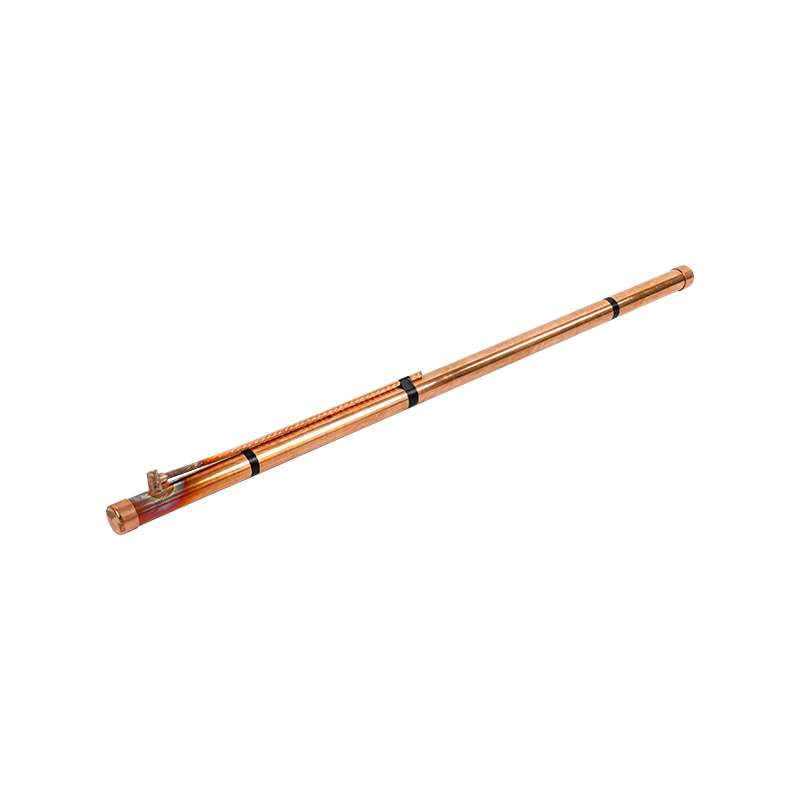In the realm of electrical protection, grounding systems play a pivotal role in ensuring the safety and integrity of electrical installations. Traditionally, the most widely used method for grounding involves the utilization of metallic rods driven into the ground. However, recent advancements in technology have led to the emergence of a groundbreaking alternative – chemical grounding rods.
Understanding Grounding Systems
Before delving into chemical grounding rods, it is essential to understand the significance of grounding systems. Grounding is a technique that connects electrical systems and equipment to the earth's conductive surface. It serves two primary purposes: safety and equipment protection.
Safety is a paramount concern in electrical installations, and grounding systems help protect against electric shock hazards. By providing a path of least resistance, grounding directs excess electrical energy, such as lightning strikes or electrical faults, safely into the ground, reducing the risk of injury to personnel and damage to equipment.
Grounding systems also safeguard electrical equipment from voltage surges, ensuring their longevity and efficient operation. They dissipate transient overvoltages, diverting them harmlessly into the ground, rather than allowing them to damage sensitive electrical components.
The Emergence of Chemical Grounding Rods
Chemical grounding rods, also known as chemical electrodes, are a relatively recent innovation in the field of electrical protection. These rods are made of a specialized conductive material infused with a mixture of chemically enhanced compounds. This unique composition enables the rods to provide an efficient and long-lasting grounding solution.
Science Behind Chemical Grounding Rods
The success of chemical grounding rods lies in their ability to facilitate a low-resistance path to the earth's surface. The specialized conductive material in the rods, combined with the chemical compounds, enhances the rod's conductivity. This ensures efficient dissipation of electrical energy, even in challenging soil conditions.
The chemical compounds present in these rods interact with the surrounding soil, reducing its resistivity and creating a conductive zone. This conductive zone extends the reach of the grounding system, resulting in lower resistance values compared to traditional metallic rods. The reduced resistance offers superior electrical performance and a highly effective path for fault currents or surges to dissipate.
Benefits of Chemical Grounding Rods
Chemical grounding rods offer several advantages over traditional metallic rods. Firstly, their enhanced conductivity and low resistance provide a more reliable and efficient grounding solution. This leads to improved electrical performance, reduced voltage surges, and enhanced equipment protection.
Secondly, chemical grounding rods exhibit excellent corrosion resistance, even in harsh soil conditions. The chemical compounds present in the rods create a protective layer that prevents rust and corrosion, ensuring the longevity and reliability of the grounding system.
Furthermore, chemical grounding rods are easy to install and require minimal maintenance. Their lightweight design simplifies transportation and installation, making them a convenient option for various applications.
Chemical grounding rods have emerged as a game-changer in electrical protection due to their superior conductivity, extended reach, and corrosion resistance. By utilizing the science behind these rods, electrical installations can benefit from improved safety, enhanced equipment protection, and increased operational reliability. As technology continues to advance, it is crucial for industry professionals to stay abreast of these innovative solutions that have the potential to revolutionize electrical grounding systems.
 Chemical Grounding rod
Chemical Grounding rod
Technical advantages of TuAn Slow release chemical grounding rod:
1. The device has a strong automatic adjustment function, continuously supplementing conductive ions to the soil around the electrode to improve the resistivity of the surrounding soil.
2. The electrode unit adopts corrosion-resistant alloy materials, and the external backfill adopts physical materials with long-term corrosion resistance and high-voltage shock resistance as auxiliary materials; greatly extending its service life.
3. The backfill is mainly made of physical and chemical substances with strong water absorption, strong adsorption and strong ion exchange capacity. Complete the efficient and tight integration of the electrode unit and the surrounding soil, and will reduce the resistivity of the surrounding soil, effectively enhancing the lightning conduction and release capability.
4. The high-energy backfill can fully contact the ion grounding electrode and the surrounding soil, greatly reducing the contact resistance. And the fluidity and permeability are good, and the contact area with the soil is increased, thereby increasing the drainage area.
5. Since the electrode unit adopts low-permeability materials, it has strong resistance to direct lightning and induced pulse attacks and prevents secondary effects of lightning.
6. Because of its excellent grounding effect and strong adjustment function, it is mainly used in areas with high soil rates and cities with highly dense buildings.
7. Due to its excellent grounding effect, it occupies a small area, has a small amount of construction work, and saves materials.
8. All materials used in the ion grounding electrode are non-toxic and non-polluting, which is a green product.

